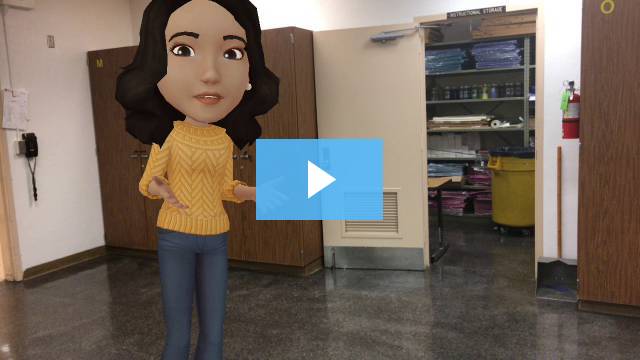“Don’t Talk to Strangers!”
Imperative Conversations in Today’s Digital World
Submitted by Wen-Wen Cheng, Instructional Technology Facilitator
Perez Career and Transition Center
 “Don’t talk to strangers!” Growing up, how many of us have been advised of this by our parents, teachers, and loved ones? Back then, it was easier to identify who strangers were and to have a clear understanding of how to avoid them. However, in today’s digital age, this saying takes on a new meaning. The definition of “strangers” is no longer so simple to conceptualize and define. The digital world provides many opportunities to increase our understanding and perspective of the world, but these opportunities come with a new set of rules and skills that we must learn in order to safely and responsibly navigate this world.
“Don’t talk to strangers!” Growing up, how many of us have been advised of this by our parents, teachers, and loved ones? Back then, it was easier to identify who strangers were and to have a clear understanding of how to avoid them. However, in today’s digital age, this saying takes on a new meaning. The definition of “strangers” is no longer so simple to conceptualize and define. The digital world provides many opportunities to increase our understanding and perspective of the world, but these opportunities come with a new set of rules and skills that we must learn in order to safely and responsibly navigate this world.
Digital Citizenship conversations in the classroom
 There was a lot of buzz and excitement in the air when the Perez Career and Transition Center (CTC) students, teachers, and staff participated in this month’s Digital Citizenship assembly. The event was timely since online safety has been on the minds of many students and staff. Students have been approaching teachers with questions about situations they are encountering online and are unsure about how to handle. The Digital Citizenship assembly provided a perfect segue for teachers to begin the important conversation with students about how to interact with others in a positive way, identify warning signs, and avoid risky behaviors.
There was a lot of buzz and excitement in the air when the Perez Career and Transition Center (CTC) students, teachers, and staff participated in this month’s Digital Citizenship assembly. The event was timely since online safety has been on the minds of many students and staff. Students have been approaching teachers with questions about situations they are encountering online and are unsure about how to handle. The Digital Citizenship assembly provided a perfect segue for teachers to begin the important conversation with students about how to interact with others in a positive way, identify warning signs, and avoid risky behaviors.

"Don't Talk to Strangers!"
Adapted from the resources of Common Sense Education, the focus of the conversation was on Safe Online Talk. The assembly presented numerous opportunities for classes to explore Safe Online Talk concepts, scenarios, and their own experiences on this topic. Throughout the assembly, teachers facilitated Digital Citizenship discussions with their respective classes in order to differentiate, make connections, and support their students where they are.
 Digital tools such as Padlet, Tellagami, and Kahoot were leveraged to further engage and deepen the group discussions about Safe Online Talk. To start, each class shared their initial thinking on a Padlet about what the saying “Don’t Talk to Strangers” means when we engage with others online. Teachers and students discussed various real-life scenarios presented via Tellagami in order to determine whether they would be identified as green, yellow, or red light situations and why. Students and staff engaged in a little friendly competition with a game on Kahoot at the conclusion of the assembly.
Digital tools such as Padlet, Tellagami, and Kahoot were leveraged to further engage and deepen the group discussions about Safe Online Talk. To start, each class shared their initial thinking on a Padlet about what the saying “Don’t Talk to Strangers” means when we engage with others online. Teachers and students discussed various real-life scenarios presented via Tellagami in order to determine whether they would be identified as green, yellow, or red light situations and why. Students and staff engaged in a little friendly competition with a game on Kahoot at the conclusion of the assembly.
 With a Common Sense Education Family Tip Sheet in hand, students were excited to continue this important conversation with their families. Teachers plan to access the teacher resources from Common Sense Education and extend the discussion with their students in the coming weeks. These Digital Citizenship conversations will be essential for our students to be successful as 21st century digital citizens.
With a Common Sense Education Family Tip Sheet in hand, students were excited to continue this important conversation with their families. Teachers plan to access the teacher resources from Common Sense Education and extend the discussion with their students in the coming weeks. These Digital Citizenship conversations will be essential for our students to be successful as 21st century digital citizens.







